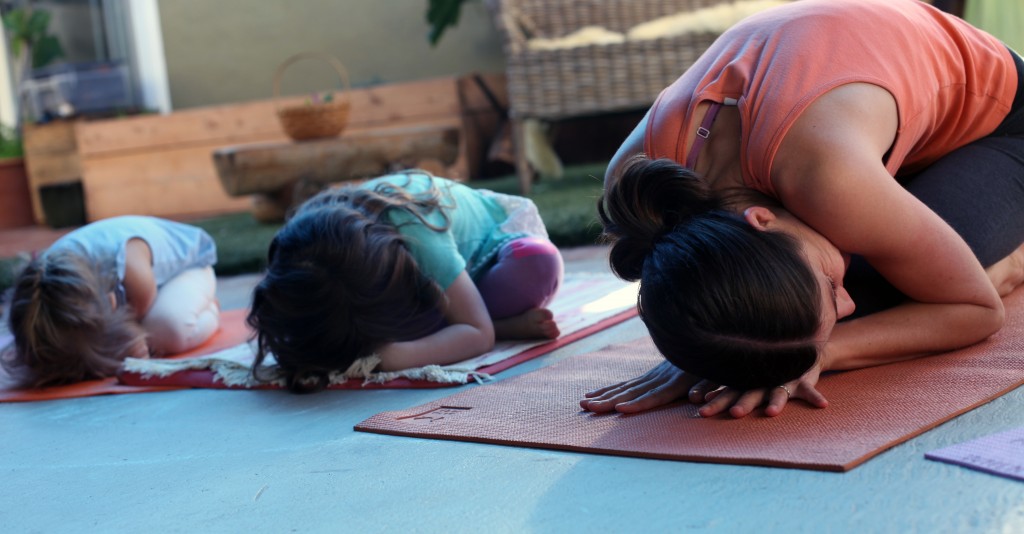How to tell your child is an introvert
Do you often observe your kid rather stand aside and watch other kids running about the playground instead of joining them? Does your little one prefer to spend time alone looking through books or coloring? Does your child tend to draw his or her shoulders in or look at the ground not making eye contact when spoken to?
All these behavioral patterns might signal that your child is an introvert. It means that, while other kids are likely to be very vibrant, your little boy or girl is much more cautious, hesitant and reserved. But this shouldn’t discourage you, because such behavior is mentally and emotionally healthy.
Introversion vs shyness
With a third to a half of the population being introverts, introversion can hardly be considered a minority attribute. It should also be noted, that introversion is different from shyness. While being shy is about fear of social judgment, introversion is more about how the child responds to social stimulation. Extroverted children seek for a company and crave for engagement, whereas introverts feel most alive when in a low-key environment.
School challenges for introverted children
In our extremely exhibitionistic world, where being social and outgoing is favored above other skills, it can be tough and even shameful to be an introvert. Since a commonly shared belief is that creativity and productivity come from sociability, most important educational institutions, like kindergartens and schools, are designed mostly for extroverts and imply lots of social stimulation.
Nowadays, in a typical classroom, kids sit at pods of desks facing each other, engaged in numerous group projects. Even in preschool education, in subjects like math, which generally relies on autonomous thinking, kids are expected to act as committee members. In such circumstances, those who prefer to work alone are often seen as a fine point.
How to take care of your introverted child
If you feel your precious one is prone to introversion, here are some guidelines to follow, so that to encourage and support your child.
• Recognize your child’s innate features
Introverted children behave in the way they do because of their nature. There’s a biological reason for it – introverts’ and extroverts’ brains are wired differently. They engage different parts of their nervous systems and use different neurotransmitter pathways. You should accept your kids’ introverted nature and let them know you are comfortable with who they are.
• Help your child express feelings
Keeping in mind that introverted kids often keep their feelings bottled up, parents should help their offspring communicate by giving them a tool for self-expression. Let it be drawing a picture, or acting out with toys − anything that helps to describe the situation and release tension.
• Allow your child time alone
While extroverts feel charged by socializing, introverts, by contrast, may feel drained. Don’t take it personally when your child spends time alone in his or her room, reading a book or playing an imagination game. Introverted kids need some time to mull over activities and emotions experienced during the day.
• Expose your child to new settings little by little
Introverts often feel anxious about staying in an unfamiliar environment and meeting new people. Whatever the occasion, remember to go slowly, so that to relieve the child of stress. Discuss with your children the event you are going to attend beforehand, talking about who will be there, what will be happening, and how they might feel. Likewise, coming to the place well in advance will make introverted kids feel more comfortable about other people joining them, rather than having to push them into a crowd of strangers.
• Pay attention to your child’s school environment
Some teachers may misinterpret the behavior of introverted children and mistakenly assume that they’re disinterested or lack concentration. Actually, introverted kids can be quite attentive and very dedicated, provided they’re in the appropriate settings. A proper preschool education should give introverted children an opportunity to think, imagine and get creative, while teachers should gently help them navigate through interactions with peers and participation in a group work.
Kids Collective takes care of introverted children
Kids Collective, a preschool implementing Montessori and Reggio Emilia philosophies, makes every effort to provide a nurturing environment for kids to grow self-confident and socially well-adjusted.
The friendly preschool family develops an individual approach to each child and helps introverted children be themselves and cope better in social situations without the pressure of fitting neatly into the expectations of the community.
While it’s true that teamwork is of huge value for personal development. At Kids Collective, children are not pushed into group activities, but are allowed to approach the team at their own pace and comfort level. Recognizing introverts’ need for retreats, Kids Collective strives for a balance between teamwork and time for self-guided activities in its curriculum.
Keeping in mind that well-developed talent is a great source of confidence, Kids Collective encourages children’s natural interests and provides opportunities to follow their passion. At Kids Collective, teachers come up with a variety of preschool activities for introverted children – like reading, painting, gardening, and yoga – to assert their talents and develop new skills while allowing their minds to wander.
Taking care of introverted children does require a lot of attention, patience, and delicacy. Some parents might find it challenging. But, in the end, isn’t this quiet and soft-spoken kid the greatest gift of your life? So treasure your children and cherish their introverted nature. And remember – the more you embrace their uniqueness, the happier they are.

